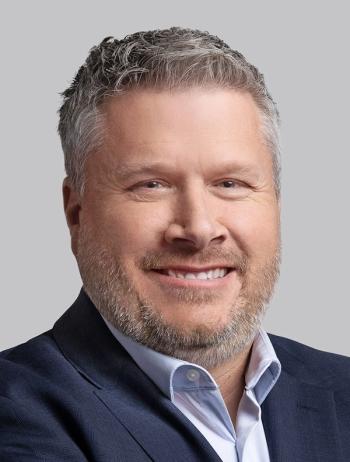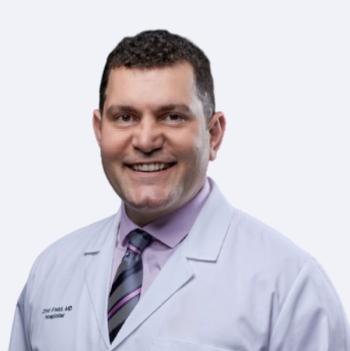
Make social media part of your dispute resolution toolkit
The rise of social media has given medical practices a new tool for overcoming one of their biggest headaches: resolving disputes
The rise of social media has given medical practices a new tool for overcoming one of their biggest headaches: resolving disputes, or just getting answers from payers, EHR companies, and the many other entities practices depend on to operate efficiently and provide care to patients.
That’s because these organizations are sensitive to their online reputations. So when traditional methods of communication don’t get their attention, tweets and Facebook posts often will-provided they are worded and timed correctly.
Healthcare practice consultant David Zetter, CHBC, has been using social media to help clients deal with insurance companies and vendors for nearly a decade. He spoke recently with Medical Economics about what he has learned, and how even small practices can use social media to get these companies to respond to their needs.
What are some examples of times you’ve used social media on behalf of practices?
David Zetter: I have one client that had issues with the EHR company eClinicalWorks in early 2017. They were trying to report their results for Meaningful Use (MU) but having problems. And they were trying to get someone [at eClinical Works] to respond, and it just wasn’t working. They weren’t picking up the phone, they weren’t responding back after leaving messages.
So we basically set out on a social media campaign, saying that the company’s support wasn’t satisfactory, that deadlines were looming for MU attestation, and the company wasn’t responding. We started sending out tweets, posting to Facebook, basically anything that we could tag eClinicalWorks or any of their products. Within a week we started getting phone calls and got some of our issues resolved.
What gave you the idea to use social media this way?
DZ: I work with payers on behalf of clients all the time. And it’s difficult with [those] networks being closed, with payers that are consolidating and the lack of [support] infrastructure. For instance, UnitedHealthcare has been growing left and right for the last few years, and they don’t hire enough contract managers. They’re short-staffed on credentialing, they outsource their work to places like the Philippines or India, so a lot of times you can’t understand what the person you’re talking to is saying. And when we have issues with that, I start going to social media and start commenting on how terrible it is to deal with them or get answers.
I did this just recently with them because I wasn’t getting any response on credentialing I’m doing for a client [practice] in Texas. And they finally responded. I got a supervisor to call me and now they’re handling it.
Here’s another example: We had a client practice that was having problems with a lab. The lab was billing things incorrectly. We weren’t getting responses to our concerns. So we started tweeting and posting on Facebook about the lack of response we were getting. After about four days, we got a phone call from someone monitoring their social media. I told that person I needed to speak with someone above them, their supervisor or vice president, and within a few hours I got a return phone call and we got resolution to our issue. It worked; no ifs, ands, or buts about it.
With so many social media platforms now, how can practices know where to post so they’ll get a response? And isn’t it time-consuming to be posting throughout the day?
DZ: I use an application called Buffer. It lets me type one message and it will go out to every social media channel that I have. So if I type in one message-and I can do it from my phone, my PC, or anything-it will hit my Facebook page, the NSCHBC [National Society of Certified Health Care Business Consultants] Facebook page, both LinkedIn pages, both Twitter accounts; it goes to all of that. One message goes out everywhere. And you can set it in advance. So I’ll just barrage it for a week and I almost always get a phone call back.
Do you get individuals from your client practices involved as well, like asking them to put out messages on the practice’s social media sites?
DZ: No, I usually handle it for my clients myself, because some of them tend to get upset or irate and I don’t want them to do something that will reflect badly on them or the practice, so it’s got to be done properly. I’ve kind of tweaked it over a time as far as what to say that will get attention, but not look like all we’re doing is complaining. I want to fix the problem.
How frequently do you post
messages?
DZ: My strategy usually is to start by sending out one message per day, just to kind of rattle their cage a little and see if anyone responds. And if they don’t respond after about 48 hours, then I’m going to make a big deal out of it, meaning I’m going to hit them constantly throughout the day.
Has it ever come to that?
DZ: Yes, with that practice having trouble getting credentials from UnitedHealthcare. At first I got a few responses via Twitter asking for my e-mail and phone number, but then no one followed up, and that just irked me even more. How long does it take to pick up a phone and call me to say, “Hey, we’re going to take care of this”?
So I ended up sending out a barrage. And once they did finally call me they asked me to take down the other posts, and I said, “Once I get a phone call from the person I need to speak to, then I will take everything down. But I want to know that it’s well on its way to being resolved.” When they start affecting care for their beneficiaries and members, then I’m going to make noise about it.
Have you ever turned to social media when a client has encountered a problem with a prior authorization or some kind of payment issue?
DZ: Absolutely. The Veterans Administration has a prior auth process that requires you to make a phone call, send in a request for a prior authorization, then wait for them to respond. They wouldn’t give it to you on the phone. And you’d have to wait forever. You couldn’t schedule the patient for the diagnostic testing or procedure.
So we tweeted about that. It took about two weeks, but we ended up having someone intercede from TRICARE [the Veteran Administration’s healthcare system]. They assigned one person to our account to make sure our requests were prioritized, and I basically got it down to, “We’re going to make a phone call and I want the prior auth completed then and there, otherwise we’re going to spread the news that the government can’t handle its veterans.”
Is using social media like this something any practice can do on its own?
DZ: Absolutely. But you first have to try going through all the normal channels. If you don’t get anywhere then you can use social media.
Always keep it professional. Focus on solving the problem, not about being upset that your time is being wasted. I’d even go so far to say that when you compose a message, have someone else review it to make sure it says what you want and doesn’t come across in the wrong way. Because it’s going to reflect on you or your employer. You don’t want that.
Newsletter
Stay informed and empowered with Medical Economics enewsletter, delivering expert insights, financial strategies, practice management tips and technology trends — tailored for today’s physicians.






